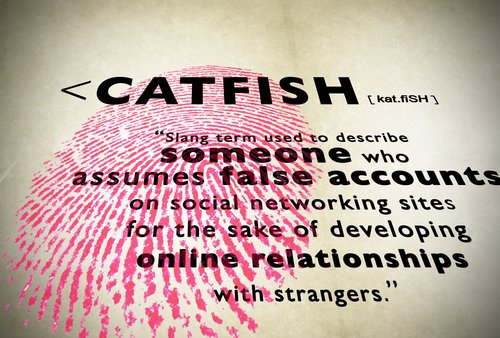Catfishing itself is not illegal. Specific actions related to catfishing can lead to legal consequences.
Catfishing refers to creating a fake online persona to deceive others. People often use it in dating apps and social media. While pretending to be someone else is not against the law, it can lead to criminal activities, including fraud, identity theft, and harassment.
Victims of catfishing may suffer emotional and financial harm. Legal repercussions depend on the actions taken by the catfish. Law enforcement can get involved if the deception crosses into illegal territory.
In this article, we will explore Catfishing and its legal allowance.
What is Catfishing?
Catfishing involves creating fake online identities to deceive others. Is it illegal to catfish? Laws vary by jurisdiction, but catfishing often leads to serious legal consequences, especially if it involves fraud or harassment.
Catfishing can happen on social media, dating sites, or online chat rooms.
The catfisher may use someone else’s photos and information to trick people.
Psychological Impact
Catfishing can leave victims feeling betrayed and humiliated. These experiences vary widely, but common themes emerge.
- Trust Issues: Victims may struggle to trust others.
- Emotional Rollercoaster: Initial excitement turns to disappointment.
- Isolation: Victims might withdraw from social circles.
These experiences can have lasting effects. Victims often need support to heal.
Catfishing can severely impact mental health. It often leads to anxiety and depression.
| Mental Health Issue | Description |
| Anxiety | Victims feel constant worry and fear. |
| Depression | Feelings of sadness and hopelessness prevail. |
| Low Self-Esteem | Victims doubt their worth and capabilities. |
Is Catfishing Illegal?
Several laws can apply to catfishing. These laws often depend on the specific actions of the catfisher. Here are a few key points:
- Identity Theft: A person pretending to be someone else can be a crime.
- Fraud: Using fake identities to deceive others might be fraud.
- Harassment: Persistently contacting someone under false pretenses can be harassment.
These laws vary by region. Always check your local regulations.
Catfishing laws differ around the world. Different countries have different rules. This table highlights some variations:
| Country | Relevant Law | Details |
| United States | Federal Identity Theft and Assumption Deterrence Act | Using false identities can lead to severe penalties. |
| United Kingdom | Fraud Act 2006 | Deceiving others for personal gain is punishable. |
| Australia | Criminal Code Act 1995 | Identity theft can result in imprisonment. |
Fraud And Deception
Catfishers may trick victims into sending money. They create fake stories to gain sympathy. These stories often involve emergencies or financial troubles. Victims believe these lies and send money to help.
| Type of Scam | Description |
| Emergency Scams | Claiming a sudden financial crisis to get money quickly. |
| Investment Scams | Promising high returns on fake investments. |
| Love Scams | Pretending to be in love to exploit the victim financially. |
Some catfishers steal personal information. This leads to identity theft. They use this information to open bank accounts. They may also apply for loans or credit cards. Victims often don’t know until it’s too late.
Identity theft can ruin a person’s credit score. It can also lead to legal troubles. Victims spend years fixing the damage.
- Phishing: Sending fake emails to get personal details.
- Account Hacking: Breaking into online accounts to steal data.
- Impersonation: Using stolen details to pose as someone else.
Social Media Policies
Each social media platform has its own rules. These rules help prevent harmful behaviors like catfishing. Catfishing is pretending to be someone else online.
Facebook, Instagram, and Twitter all have policies against fake profiles. They use advanced technology to detect and remove these profiles. If caught, users can face account suspension.
| Platform | Action Against Catfishing |
| Account suspension or removal | |
| Profile deletion | |
| Account ban |
Users must follow platform rules to stay safe. Do not create fake profiles or impersonate others. This is against social media guidelines and is unethical.
Report any suspicious behavior to platform moderators. This helps keep the community safe. Always use your real identity on social media.
- Use your real name and photo
- Do not share false information
- Report fake profiles
Frequently Asked Questions
Is Catfishing Illegal Everywhere?
Catfishing is not illegal everywhere. Laws vary by location. Some regions have specific laws against online impersonation. Always check local regulations.
Can You Go To Jail For Catfishing?
Yes, you can go to jail for catfishing. Penalties depend on the severity and local laws. Fraud and harassment charges are possible.
How Can Victims Of Catfishing Get Help?
Victims of catfishing can contact local law enforcement. They should also report the incident to the platform used. Seek support from online safety organizations.
Conclusion
Catfishing can have serious legal and emotional consequences. Always prioritize honesty and transparency online. Understanding the risks helps protect yourself and others. Legal actions vary by location, so stay informed. Remember, genuine connections build trust and respect. Be mindful and considerate in all online interactions.


